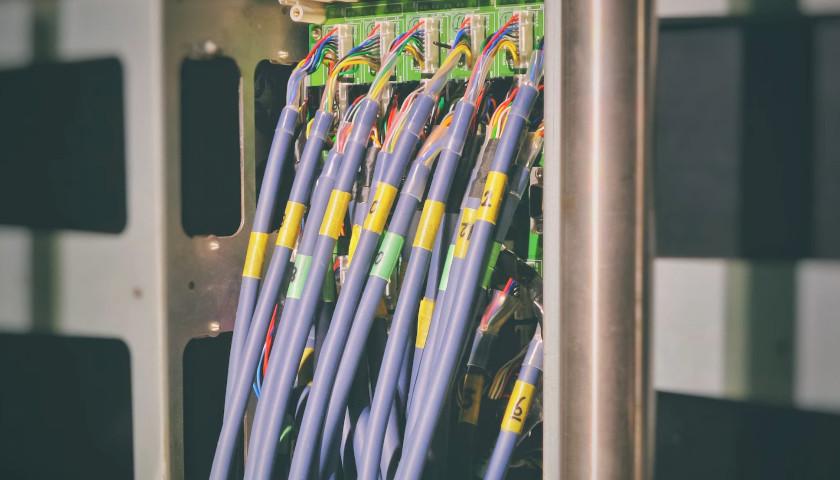by James Erwin
As a Capitol Hill staffer in 2021, I had the opportunity to work on the Infrastructure Investment and Jobs Act’s broadband title, which resulted in the Broadband Equity, Access, and Deployment (BEAD) program. Since then, I have advised states on how to best use the program’s block grants to ensure fiscally responsible broadband expansion. With $813 million coming its way for broadband buildout and adoption, Tennessee has positioned itself for success – if government-owned networks, or GONs, can be kept out.
GONs, usually owned by cities or counties, rely on massive injections of taxpayer dollars to build duplicative broadband networks intended to undersell private sector competitors and drive them out of the market. The hope is that GONs then scoop up the orphaned customers and impose government-controlled internet on their local area. The reality is that GONs nearly always overestimate how many customers they will attract and underestimate the costs of construction and ongoing operations and maintenance, ending up back in front of county commissions and city councils asking for millions more, all on the backs of taxpayers.
If this model is replicated all over the country, states will begin asking the federal government for GON bailouts, which his would effectively nationalize the internet in the United States, turning it into a constellation of GONs dependent on federal funding.
In the long run, GONs are an unreliable waste of taxpayer money that fail to deliver good service while giving the government more control over the internet, which we have seen time and again all across the country.
Under Tennessee’s rules, BEAD applicants are (naturally) scored higher if their bids offer lower costs. But the state has also wisely given preference to bids that provide matching funds for the state grant, that can demonstrate community support, and that expect to build quickly. These are conditions that are much easier for private sector internet service providers (ISPs) to meet if they turn a profit, so GONs struggle to fulfill them.
There are already numerous examples of GONs in Tennessee failing to meet the state’s criteria. In Clinton, the local utilities board considered submitting a bid but decided against it when they realized they could not afford the fiber to build the network or turn a profit. Humboldt submitted an application and then withdrew it. Harriman, whose utility board employs the mayor as well as his niece and son-in-law in a fairly blatant conflict of interest, is spending three times their initial cost estimate on expanding their network.
Nor are these issues unique to new GONs applying for BEAD money. The Volunteer State has a long history of government-owned fiber networks failing to live up to expectations.
The Electric Power Board of Chattanooga, long held up as a model of a successful GON, proves the point. EPB claims to be the first fiber network to offer gigabit service to all of its customers and has managed to stay afloat since 2009. What this narrative leaves out is the more than $200 million in state funding and local bonds it has received over the years and the $111.5 million cash infusion from federal stimulus spending. Chattanooga also received COVID money from President Biden’s state and local slush fund that can be used to backstop EPB.
Without these windfalls, it is unlikely EPB would have survived this long. Ironically, EPB has recently entered the consulting business to help other cities stand up fiber networks – including costly and potentially corrupt Harriman.
The Knoxville Utilities Board also already has a GON, KUB Fiber, which is so desperate for subscribers that it is offering free service to various constituencies while spending more and more on marketing. KUB Fiber is not currently meeting its revenue targets to remain solvent. GONs are not a model for successful broadband buildout.
While the state’s broadband plan creates a robust reporting regime, better transparency in the form of a central database on BEAD expenditures would help to accurately assess how GONs are performing. Currently, only challenges to grants are posted on the Tennessee Department of Economic and Community Development’s website.
Focusing on the need for transparency with taxpayer’s money, Latinos for Tennessee recently launched a webpage dedicated to educating the public about the dangers of GONs in Tennessee and highlighting their flawed approach to internet policy. However, taxpayers deserve a full accounting on how their money is used to bail out these failing projects. The legislature should act on this as projects start showing returns next year.
Disclosures aside, the legislature and the governor’s office deserve credit for designing Tennessee’s BEAD program to discourage expensive, unstable alternatives to reliable private sector ISPs. The scoring criteria are reasonable and will help ensure the long-term viability of the networks receiving government grants to reach unserved areas, and it is telling that most GONs in the state are not able to meet them. With these safeguards in place, Tennessee is positioned for success with its BEAD program, avoiding more of the damage GONs have already done across the country. It’s much more efficient for private providers to expand into underserved areas than for GONs to use taxpayer money to build entirely new networks that then compete with private providers. At the end of the day, taxpayers should not be put at risk by subsidizing GONs.
– – –
James Erwin worked for Senator Susan Collins (R-ME) from 2018 to 2022. He now leads telecommunications policy for Americans for Tax Reform in Washington, DC.
Photo “Installing Broadband” by BDUK.






A little late to worry about this where I live. Our electric coop took it upon itself to install and operate a fiber optic internet service. Not my idea of what an electric coop was created to do but they have to justify their continued growth some way, I guess. So the infamous broadband disaster pushed through the feds is a waste of money for me. I will just take a check for the amount it would cost to get a duplicate service to me out here in the country.